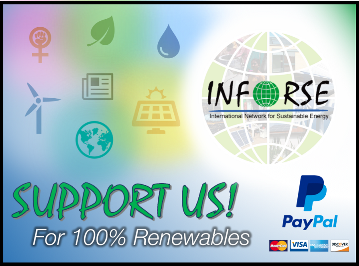|
|
|
|
|
|
|
|
|
|
|
|
|
|
|
|
|
|
|
|
|
| Follow Us: |
| Argentinean Voluntary Commitment to Increase Emissions | |
| By Roque Pedace, REJIMA, Argentina | |
|
At the 1998 Climate Convention Conference in Buenos Aires (COP4), the Argentinean government committed itself to present at the next conference (in Bonn, October 1999, COP5) a concrete proposal of restraining emissions , the so-called “voluntary commitments”. So did Kazakhstan. By so doing, these two non-annex-1 countries (i.e., developing countries with no reduction targets for greenhouse gases) could expect better negotiating positions regarding flexible mechanisms, i.e., a better chance of trading their emissions quotas. By May, 1999, Kazakhstan decided to join the Annex-1 countries, leaving Argentina as the only non Annex-1 country with voluntary commitments. The dilemma faced by the people in charge of the preparation of this proposal was exposed at a workshop organised by the World Bank with the Canadian and Argentinean governments to discuss flexible mechanisms and mitigation options. It became apparent that, in a “Business as Usual” scenario, there was a perverse incentive to increase emissions now and mitigate in the future, since this would raise the projected baseline and, hence, the amount of GHG emission “rights” that could be traded. On the other hand, if this baseline is fixed at a lower level by the international community, as we could reasonably expect after 2012, the country would face the costs of having taken the wrong path for so long. It seems that the government wants the Argentinean position to be the first one, since it minimises adaptation costs and maximises short term opportunities for CDM and other possible flex mechs. Of course, for this to happen, the rest of the parties must first accept the emission scenario presented by Argentina. This is quite unlikely, since it would trigger similar claims from other non-annex-I countries misled by the” leading case”. The final result of this would probably be a net increase in worldwide emissions by 2012. Early action is regarded as costly and unnecessary under this scenario, since mitigation options could be preserved for emission trading, thus being paid for by Annex-I countries. The other contentious issues are the criteria for choosing mitigation projects, which include sinks (forestry) and mega-hydropower plants. |
|
| Argentinean NGOs for Emission Reductions | |
|
INFORSE Argentina and other members of Foro del Buen Ayre have been pushing for an increase in the total goal of wind projects: at least three times higher than the official proposal for the period from now to 2015. They also advocate more ambitious targets for transportation and energy efficiency, as well as elimination of unsustainable options such as nuclear or new mega-hydro schemes. This could mean zero growth of emissions, or even reductions, by 2012. We believe that early action is needed if we want to fulfil this promise, not only for the good of the climate but also to direct CDM towards renewable energy rather than towards unsustainable options. More information: REJIMA, INFORSE Coordinator |
|

| |
| Published in Sustainable Energy News |
|
|
Go back to main page of ISSUE #26 (855KB) 18 pages (1999-08-01) |
|
| Contact | |
| |
INFORSE Secretariat Klosterport 4F, 1. floor DK-8000 Aarhus C Denmark Phone: +45 86 22 70 00 Twitter: INFORSE_org Facebook: INFORSE Web: inforse.org E-mail: ove@inforse.org |
